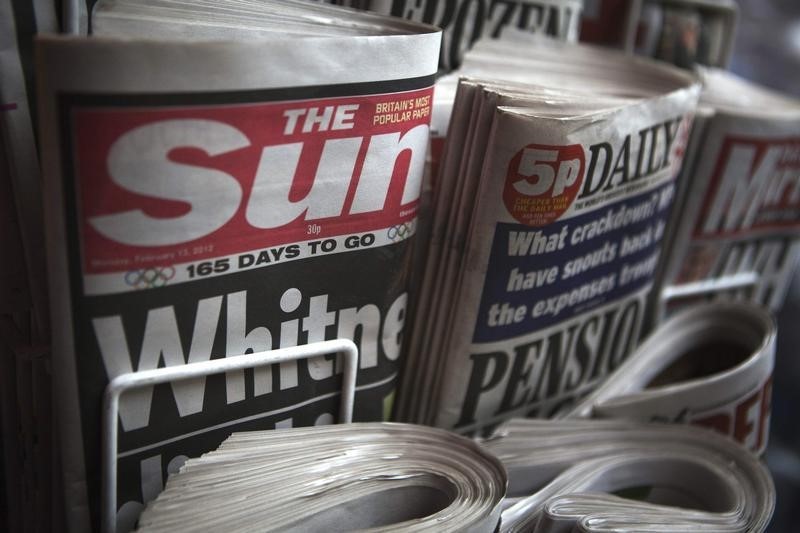LONDON (Reuters) - Britain's Trinity Mirror newspaper group will appeal against a court ruling ordering it to pay a total of 1.2 million pounds in damages to eight phone-hacking victims, arguing the amount is "disproportionate", it said on Thursday.
The group, which owns the Daily Mirror and Sunday Mirror tabloid newspapers, had raised its provision to deal with the fallout from phone-hacking from 12 million pounds to 28 million pounds following the May 21 ruling by a High Court judge.
The amounts awarded by the judge were much larger than those obtained by other victims of phone-hacking by journalists in earlier out-of-court settlements, potentially raising the cost of dealing with any future claims.
"MGN Limited has already accepted that it should pay appropriate compensation to individuals who were the target of phone-hacking," Trinity Mirror said, referring to its subsidiary that owns the Mirror titles.
"However, we believe that the basis used for calculating damages in the judgment is incorrect and the amounts awarded by the judge are excessive and disproportionate," it said.
The company said there remained uncertainty as to how matters would progress and it would make further announcements if there were any significant developments or if its estimated financial exposure were to materially change.
Shares in Trinity Mirror fell 4 percent in the minutes after the announcement was made.
The victims awarded damages were actress Sadie Frost, retired footballer Paul Gascoigne, BBC executive Alan Yentob, three TV soap opera actors, a TV producer and a flight attendant who had dated former England footballer Rio Ferdinand.
The eight claimants sought damages after reporters seeking scoops listened to their voicemail messages, leading in some cases to salacious stories and to the victims suspecting those close to them of leaking information to the press.
The May 21 ruling was the first time a civil lawsuit related to phone-hacking was decided by a judge. Previous damages against both Trinity Mirror and Rupert Murdoch's News UK group were settled out of court.
The phone-hacking scandal erupted in 2011 when it was revealed that some staff at Murdoch's News of the World tabloid had routinely listened to private voicemail messages, including those of a murdered schoolgirl.
Murdoch shut down the 168-year-old paper and police launched a vast investigation into phone-hacking and other suspected illegal practices by tabloid newspapers. At first the focus was mostly on Murdoch's titles, but it later widened to the Trinity Mirror newspapers.
